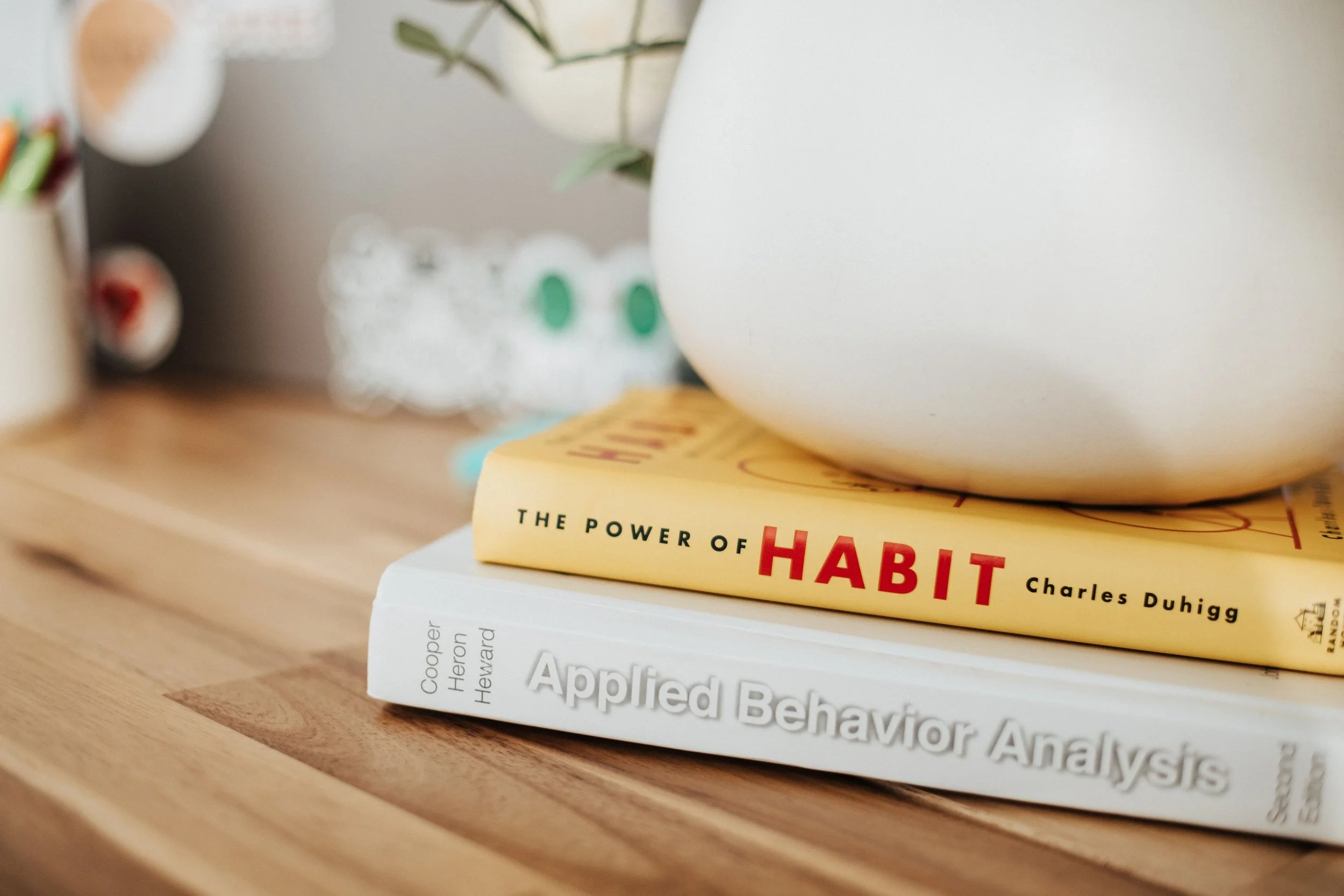1:1 Behavior Coaching
Stop spinning your wheels and build habits that actually stick.
Become the CEO of Your Life
You’ve built a successful career, but you just can’t seem to get your personal habits—exercise, organization, productivity—to fall in line. Traditional self-help doesn’t work. Willpower fades. Motivation comes and goes. You’re hitting wall after wall.
What if the problem isn’t you?
You don’t have time to rely on trial and error—you need a reliable system. Applied Behavior Analysis (ABA) is a proven, data-backed approach that will help you optimize your habits, eliminate destructive cycles, and create lasting change.
Are you ready to experience real, sustainable progress?
“Working with her
was smooth
and easy.”
“She's friendly, she's nice, she's understanding. What I liked was that she came up with a bunch of different ways until she found what way was going to work best for me at that moment in time. She's very adaptable. I know what I like, I know what I don't, but I also know what I'll do, and I know what I won't do and there's plenty of gray area where I'm open to try. So she worked in the gray areas, got me to try to do some new things, and that helped.”
- Sean, Client
What is ABA Coaching?
Applied Behavior Analysis (ABA) is an actionable framework for behavior change that actually sticks. Breaking down complex behaviors into manageable steps makes success inevitable.
You know you need an ABA 1:1 Coach if:
You’re stuck in the “try-hard, burn-out, give-up” cycle.
You struggle with habit consistency—in fitness, productivity, or sleep.
You’re tired of traditional self-help and therapy for emotional regulation.
You’re ready for real change—without the fluff.
Hi, I’m Sarah Welsh, a Board-Certified Behavior Analyst
Hi, I’m Sarah Welsh, a Board-Certified Behavior Analyst (BCBA) with two master’s degrees in Education and Applied Behavior Analysis from The Ohio State University. My expertise isn’t in theory—it’s in applied science. I help high-achieving professionals design behavior systems that actually work so they can operate at their highest level—without relying on willpower alone.
For over a decade, I’ve worked with people who excel in business but struggle with consistency in their personal lives. Using data-driven behavioral science, I help clients optimize decision-making, increase follow-through, and eliminate roadblocks—in all areas of their lives.
Change isn’t about trying harder. It’s about building a system that makes success inevitable.
How 1:1 Coaching Works
Step 1: Book a “Fit” Call
A free 15-minute consultation to see if behavioral coaching is right for you.
Step 2: Initial Assessment (90 Minutes)
We’ll dig into your habits, struggles, and goals to develop a custom behavior plan. (Investment: $400)
Step 3: Ongoing Coaching (60-Minute Sessions)
We’ll fine-tune your plan, troubleshoot obstacles, and make sure your new habits stick. (Investment: $200 per session, virtual or in-office)
One-on-One ABA Therapy: Frequently Asked Questions
What is one-on-one coaching?
One-on-one coaching helps you take control of your habits, routines, and behaviors using structured, science-backed methods. Unlike therapy, it focuses on immediate, actionable strategies for measurable progress.
What’s the difference between coaching and therapy?
Therapy explores why you struggle with change. Behavior coaching gives you the exact how-to steps for building habits and breaking cycles. It’s about strategy, not self-reflection.
Is ABA therapy effective for adults?
Yes. ABA is widely used to change behavior in any setting—from personal development to high-performance coaching. It’s scientific, structured, and proven to work.
What does an ABA coach do?
An ABA coach helps you build systems that drive consistent success. Rather than relying on motivation, we design step-by-step strategies to make progress automatic.
“Sarah is deeply knowledgeable in her field.”
“You get a good feel for what she does as a professional when you meet with her and talk with her about it for an hour. She has an infectious energy that she brings to every conversation, and she's very, very, very personable, and that in and of itself can help lead to positive results.”
-Corey, Referral Partner
You Don’t Need More Willpower—You Need a Better System.
Willpower fades. Systems don’t. Let’s create yours.







